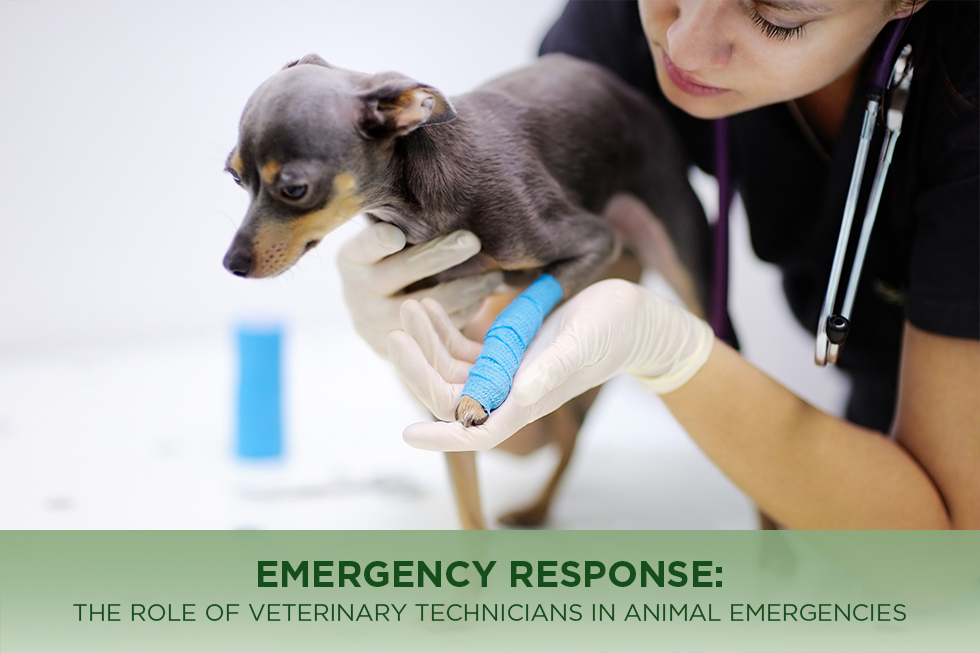In animal healthcare, veterinary technicians are indispensable, especially during emergencies. Their skills, knowledge, and quick thinking can make the difference between life and death for animals in critical situations. This blog will explore the vital role of veterinary technicians in animal emergencies, highlighting their responsibilities and the importance of their work.
The Critical Role of Veterinary Technicians in Emergencies
Immediate Assessment and Stabilization
One of the primary responsibilities of veterinary technicians during emergencies is to assess and stabilize the animal. This involves:
– Triage: Prioritizing the severity of the animal’s condition to ensure the most critical cases are treated first.
– Vital Signs Monitoring: Checking and recording vital signs such as heart rate, respiration rate, temperature, and blood pressure.
– Administering Emergency Care: Providing initial treatments such as wound care, fluid therapy, or pain management to stabilize the animal until the veterinarian arrives.
Support During Diagnostic Procedures
Veterinary technicians play a crucial role in supporting diagnostic procedures during emergencies. This includes:
– Collecting Samples: Drawing blood, collecting urine, or obtaining tissue samples for laboratory analysis.
– Performing Diagnostic Tests: Operating imaging equipment like X-rays or ultrasounds to help diagnose internal injuries or conditions.
– Assisting in Examinations: Helping veterinarians conduct thorough physical exams by restraining animals and ensuring the safety of both the animal and the veterinary team.
Assistance in Surgical Interventions
In cases where surgical intervention is necessary, veterinary technicians provide essential support:
– Preparing the Operating Room: Sterilize surgical instruments and prepare the operating area.
– Anesthesia Administration and Monitoring: Administering anesthesia and closely monitoring the animal’s vitals throughout the procedure.
– Post-Surgical Care: Providing post-operative care, including monitoring recovery, administering medications, and ensuring the animal is comfortable and stable.
Training and Skills Required for Emergency Veterinary Technicians
Education and Certification
To become a veterinary technician, you need to complete an accredited veterinary technology program, which typically results in an associate degree. After graduation, passing the Veterinary Technician National Exam (VTNE) is required for certification. Specialized training in emergency and critical care can further enhance a technician’s ability to handle high-stress situations effectively.
Essential Skills
Veterinary technicians must possess a range of skills to perform their duties in emergencies:
– Strong Communication: Effectively communicating with veterinarians, pet owners, and other veterinary staff to ensure seamless care.
– Calm Under Pressure: Maintaining composure and making quick, informed decisions in high-pressure situations.
– Technical Proficiency: Operating medical equipment and performing various medical procedures with precision.
– Compassion and Empathy: Providing emotional support to pet owners and ensuring the animals receive compassionate care during their time of need.
The Importance of Veterinary Technicians in Animal Emergencies
Veterinary technicians are the backbone of emergency veterinary care. From initial assessment to post-operative care, it ensures that animals receive the prompt and effective treatment they need during emergencies. Without their expertise and dedication, the quality and efficiency of emergency animal care would be significantly compromised.
Veterinary technicians play a crucial role in animal emergencies, providing essential care and support that can save lives. Their responsibilities span from initial assessment and stabilization to assisting in diagnostic procedures and surgical interventions. If you’re passionate about animal care, a career as a veterinary technician might be perfect for you. Take the first step towards becoming a veterinary technician by contacting MedQuest College.

